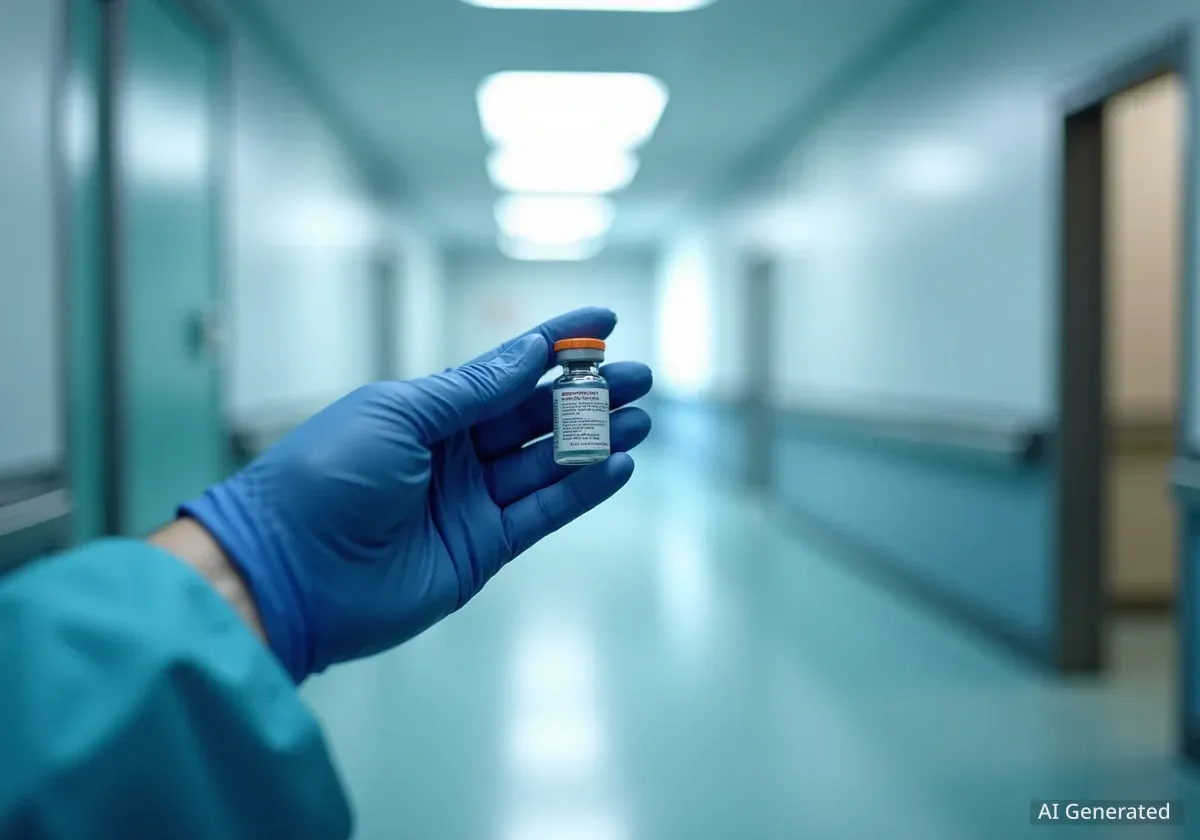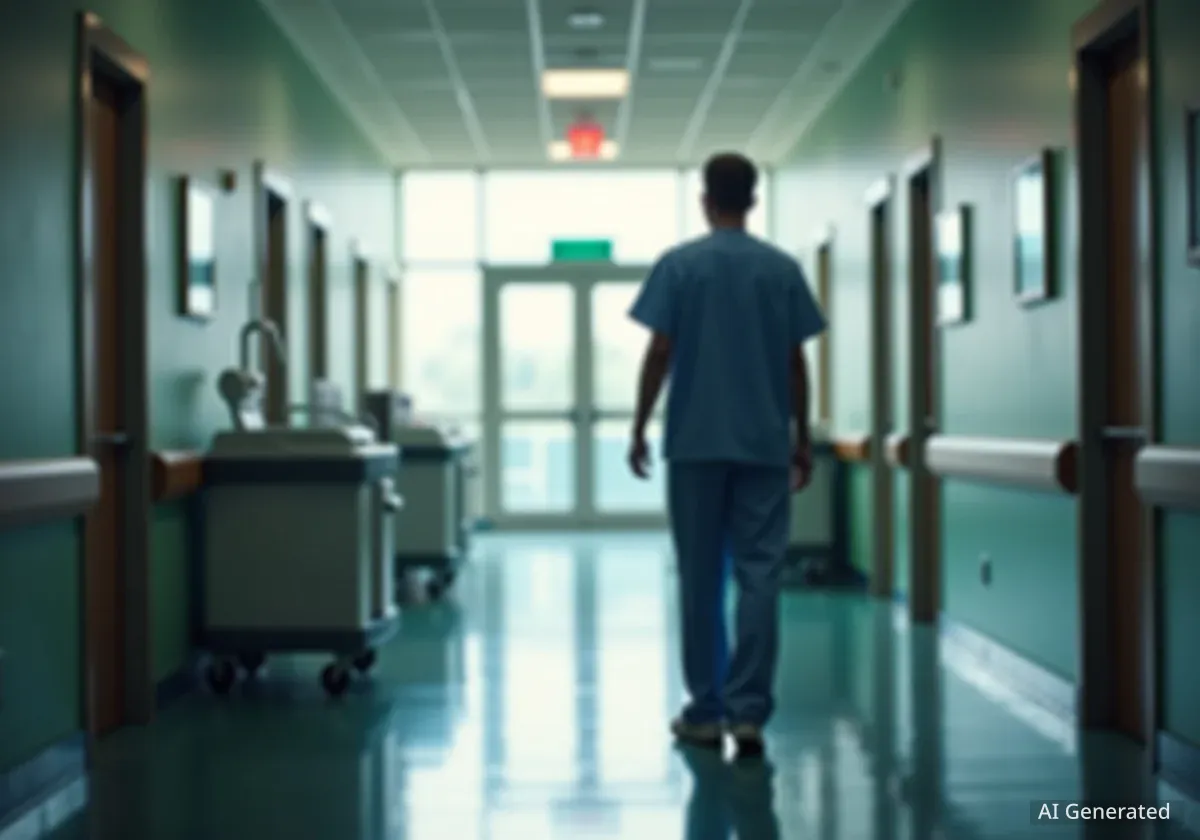New figures from NHS Blood and Transplant (NHSBT) reveal a stark reality for patients in need of life-saving operations. Over the past decade, 109 people in Merseyside have died while on the waiting list for an organ transplant. The data highlights a growing crisis across the UK, with waiting lists reaching their highest levels ever recorded.
Across the North West, the number of deaths rises to more than 740 in the same ten-year period. These statistics have been released as part of Organ Donation Week to underscore the urgent need for more registered donors and for families to discuss their wishes.
Key Takeaways
- Over the last 10 years, 109 people in Merseyside and 740 in the North West died waiting for an organ transplant.
- The UK transplant waiting list has surpassed 8,000 people for the first time, a record high.
- In the UK, over 12,000 people have either died on the list or were removed for being too unwell for surgery in the past decade.
- NHSBT is urging people to register their decision and, crucially, to discuss it with their families to prevent wishes from being overruled.
The National Picture A Growing Crisis
The situation in Merseyside is part of a wider national problem. According to NHSBT, more than 12,000 people across the United Kingdom have died or become too ill for a transplant while on the waiting list in the last decade. This figure is composed of 4,900 individuals who died while actively waiting and an additional 7,700 who were removed from the list because their health had deteriorated too significantly.
Currently, the active waiting list in the UK stands at a record-breaking 8,000 people. Within the North West region alone, 915 residents are waiting for a life-saving call. The problem was made worse last year by a decline in the number of deceased organ donors. There were 100 fewer donors, which led to a 2% decrease in the number of life-saving transplants performed.
Anthony Clarkson, Director of Organ Donation and Transplantation at NHS Blood and Transplant, emphasized the daily tragedy behind these numbers.
"Someone will die today waiting for an organ transplant. You are more likely to need a transplant than you ever are to be a donor - and most of us would accept an organ if we needed one – but far fewer of us have made the decision to donate."
The Human Story Behind the Statistics
For many families, the wait is an agonizing daily reality. Becks and Toby Fletcher from Knutsford, Cheshire, are living through this uncertainty. Their six-month-old daughter, Rory, is on the urgent heart transplant waiting list. She was diagnosed with dilated cardiomyopathy, a condition where her heart's left ventricle is too enlarged to pump blood effectively.
Rory is currently being kept alive by a 'Berlin Heart,' a mechanical pump, in the intensive care unit at Freeman Hospital in Newcastle. She is one of the smallest children in the country waiting for a new heart.
"I had the smoothest of pregnancies," said Becks, 31. "As soon as she was born though it was clear something was wrong. By the time they'd announced she was a girl, she'd turned blue and was whisked away by the nurses. She didn’t even get passed to me, no skin to skin."
Rory's Wait
Because Rory is so small, finding a suitable donor heart is especially challenging. While she is not competing with older children for organs, the number of organs donated from babies is very low, making the available pool of potential matches extremely limited.
A Glimpse of Normal Life
The family hopes for a future that many take for granted. "To get a heart and take Rory home would just be incredible," Becks explained. "At this point, we’d love to just have any glimpse of a normal life – taking her on a walk out of the hospital, picking her up without worrying about machines and wires, even just hearing her laugh or cry."
The experience has fundamentally changed their perspective on organ donation. "Toby and I are both on the Organ Donor Register, but donation was not something we’d ever talked much about before. I always just assumed I would have a healthy family... It has just totally blown our world apart."
Becks shared a powerful message for other families, acknowledging the immense difficulty of the situation. "It’s a horrible situation for anyone that loses a child... But I try to think of it that, if you can come away and turn something negative into something positive for another family, why wouldn't you? It would mean everything to us.”
The Importance of Conversation
While an 'opt-out' system for organ donation is now in place in England, the support of family remains a critical component. Donation can only proceed with the family's agreement, which is why having a conversation about your wishes is so important.
Last year, this became a significant barrier. In 173 cases, families overruled their relative's registered decision to donate. In a further 520 cases where consent was presumed under the opt-out law, families did not support donation because their loved one's wishes were unknown. These instances resulted in thousands of missed opportunities for life-saving transplants.
The Opt-Out System Explained
The law in England, known as 'Max and Keira's Law', means that all adults are considered to have agreed to be an organ donor when they die unless they have recorded a decision to 'opt out'. However, a family's support is still sought before any donation goes ahead. If a family objects because they are unsure of their loved one's wishes, the donation will not proceed.
Statistics show that when a person has proactively registered their decision on the NHS Organ Donor Register, families are much more likely to honour that choice. In 90% of cases last year, families supported the decision of a loved one who had registered to be a donor.
"We really need people who want to be a donor after they die to make it clear to their families and encourage them to support that decision," urged Anthony Clarkson. "It only takes 2 minutes to register but it could save the lives of people who so desperately need a transplant. Please sign up. It’s the best thing you’ll do today.”
How to Register Your Decision
Despite the challenges, organ donation has transformed tens of thousands of lives. Over the past decade, more than 44,000 people have received life-saving or life-improving transplants from both deceased and living donors. To help continue this vital work, NHSBT encourages everyone to confirm their decision.
There are several ways to register as an organ donor:
- Online: Visit the official NHS Organ Donation website at www.organdonation.nhs.uk.
- By Phone: Call the dedicated line at 0300 123 23 23.
- NHS App: Use the official NHS mobile application to record your decision.
Taking these simple steps and having a conversation with your family can ensure your wishes are known and could one day save up to nine lives.





